Indiana Farmers Markets Connect Consumers and Producers
Farmers markets have a way of bringing shoppers back time and again, and Indiana’s 120-plus markets are no exception. No matter what county you live in, just-picked produce, a lighthearted atmosphere, friendly vendors and affordable prices are a winning combination. [Watch a video of City Market in Indianapolis by clicking here.]
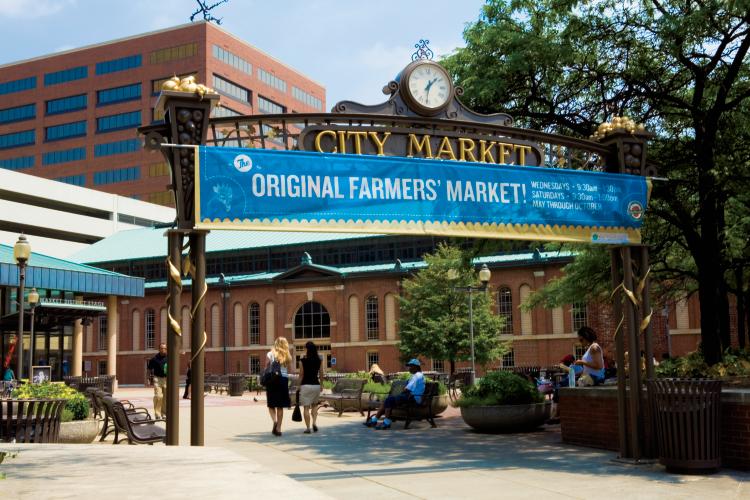
Why Shop at Farmers Markets?
“Perhaps the most compelling reason people shop at farmers markets is the food is just better,” says Theresa Stites, market manager of the Stadium Village Farmers Market in downtown Indianapolis. “It doesn’t have to be bred for shelf life, travel time and appearance in the store. You can get amazing taste in a farm-fresh egg or seasonal tomato that you can never find in something shipped and stored.”
Erin Nelson of the Historic Lafayette Farmers Market agrees.
“You know an Indiana vine-ripened tomato when you taste one,” says Nelson, program manager of Greater Lafayette Commerce, which runs the market. “There is nothing that compares to the flavor, texture and smell of produce that fresh. When we eat produce that is shipped across the world, there is a difference in all the sensations we associate with a summer tomato. The idea I can get great produce from the person who grew it is completely satisfying.”
[Find tips for shopping at farmers markets by clicking here.]
Historic Lafayette Farmers Market
Established in 1839, the Historic Lafayette Farmers Market is one of Indiana’s oldest markets. It has thrived in the same space in downtown Lafayette for more than 170 years and continues to host as many as 75 vendors three times a week, offering local foods to area residents.
“You can talk directly to the grower about how the food is grown. You can get preparation tips for new produce. And you are supporting your local economy,” Nelson says. “That connection is important in becoming more familiar with the food we put into our bodies.”
The Lafayette market is so popular that West Lafayette has started a second farmers market across the river that is experiencing similar success.
“The atmosphere at the Lafayette market is jovial,” Nelson says. “Each Saturday morning is a celebration of weather, food, drink, friends and community. We have entertainment and cooking demonstrations to enhance the atmosphere.”
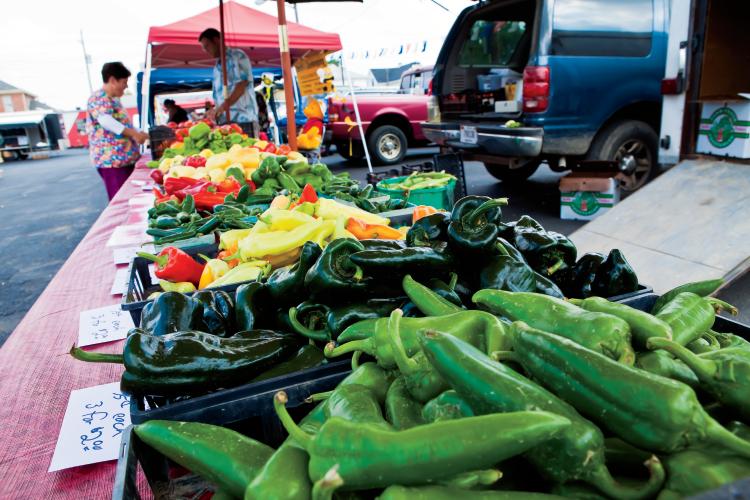
Stadium Village Farmers Market
The Stadium Village Farmers Market in Indianapolis was brand-new in 2010. It offers an alternative to typical Saturday morning markets by running on Tuesday evenings when downtown workers are leaving their jobs.
“Workers stop by after picking up kids from day care or on the way home to leisurely shop and talk with vendors to find out more about their food and how to prepare it,” Stites says. “They get items for a special dinner that night or a treat from the bakery to take home and enjoy with the family.”
The Stadium Village Farmers Market has between 20 and 30 local food vendors each week, from bakers and winemakers to farmers and makers of pet treats.
“One unusual vendor produces fermented products such as kraut and Kombucha beverages. They start with cabbage, beets, apples and other products and ferment them over time to create a healthy supplement,” Stites says. “They have samples to try and spend time educating people on the benefits of fermented products.”
Another vendor at Stadium Village is Russell Sheep Co., a family farm based in Eaton that sells frozen lamb chops, shanks, roasts, legs, kabob meat and rack of lamb at four Indiana farmers markets. The family also makes value-added products such as brats, Italian and summer sausages, and gyros.
“We started selling at farmers markets in 2008, and we have wonderful repeat customers as well as new customers who have never tried lamb,” says Diane Russell, who runs the farm with her husband, Paul, and son, Jeremy, an animal science student at Purdue University. “The markets have challenged us to become better at marketing, and we love talking with people unfamiliar with lamb about how it is raised. We can smooth over any radical information they have received about how the lambs are treated and put their minds at ease.”
That face-to-face communication between producers and consumers is special – something you won’t find at a grocery store. And it beefs up the local economy.
“The farmer keeps more of the income from their work compared to wholesaling,” Stites says, “and they are much more likely to spend that money with other Indiana businesses, which keeps the profit local.”




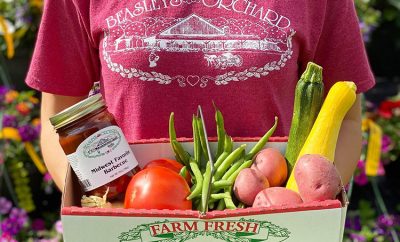
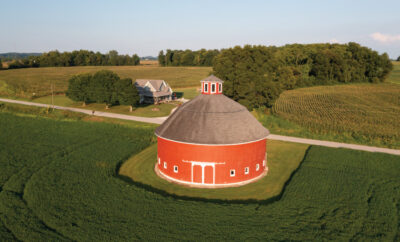

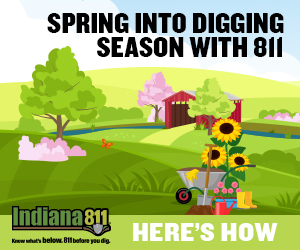


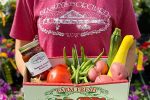


 My Indiana Home is produced for Indiana Farm Bureau members. Our mission is to connect you with the food you eat, the Indiana farmers who grow it and a rural lifestyle that is uniquely Hoosier.
My Indiana Home is produced for Indiana Farm Bureau members. Our mission is to connect you with the food you eat, the Indiana farmers who grow it and a rural lifestyle that is uniquely Hoosier.
Jessy Yancey
March 14, 2011 at 8:28 am
Hi Carol,
Thanks for your inquiry. We’ve sent you an e-mail with more information, but here are some suggestions on who to contact:
•The Indiana Cooperative Development Council (headquartered in the Indiana Farm Bureau building), which among many other things offers workshops in starting a farmers market: http://icdc.coop
• The Indiana Agritourism Directory for a list of possible producers: http://www.in.gov/apps/ISDA_FarmersMarket
• The Indiana Farm Bureau: http://www.infarmbureau.org